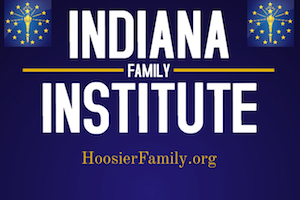|
Sep
06
2018
Thursday, September 06 2018
There’s a situation going down in my home state of Indiana that provides a good learning opportunity for people of sound mind around the country. For years, left-leaning social activists have been attempting to push “hate crimes” legislation through Indiana’s part-time legislature and onto the Governor’s desk. To this point it hasn’t happened, largely because for well over a decade we haven’t had a Governor who would have been silly enough to sign it. In late July, however, vandals scrawled Nazi graffiti on the walls of a Jewish synagogue in an Indianapolis suburb and everything changed. The state’s Republican Governor, Eric Holcomb, almost immediately issued a call for lawmakers to rectify this grievous act by enacting a new statewide “hate crimes” or “bias crimes” law. Left-leaning media, including the state’s largest newspaper The Indianapolis Star that has been editorializing in favor of this action for years, has amplified Holcomb’s request. Despite supermajorities in both houses of the state legislature, it is likely that the upcoming session will see Republicans pass a law that they once understood was unnecessary at best, dangerous at worst. Here’s why I say that:
Given these realities, plus the inconvenient truth that no hate crime statute would have prevented the Nazi graffiti at that synagogue, we can fairly surmise that this entire push is – like most progressive causes – about symbolism, not substance. It’s pandering, political grandstanding at its finest. Which is one reason why it is so depressing that Christians, who have been commanded by Christ to exercise discernment in ways the world does not, fall for this – particularly when there is often a nefarious element to these legal campaigns that threatens people of faith. It is no secret that the loudest promoters of hate crimes laws are often the same social activists who champion so-called “non-discrimination” laws that include their favorite five words: “sexual orientation and gender identity.” Once codified, those laws don’t do anything to prevent discrimination, but they do provide a legal method through which progressives can harass, bully, financially intimidate, and exact debilitating punitive fines and punishments on people whose conscience offends their agenda. When states or municipalities balk at adding those words to discrimination statutes in order to prevent that kind of harassment (like what Jack Phillips at Masterpiece Cakeshop is unconscionably having to endure in Colorado), activists slip them into the law code through channels like hate crimes bills. Codified as a legal “class” in one section of the law, it is judicially predictable to see it extrapolated outward to others – like non-discrimination. It’s the camel nose under the tent, all for no moral or legal good whatsoever. Yet in Indiana, the presidents of six of the state’s leading Christian universities and colleges – The University of Notre Dame, Indiana Wesleyan University, Anderson University, Grace College and Seminary, St. Mary’s College, University of Saint Francis – all signed a letter supporting Governor Holcomb’s foolish appeal. Christian schools whose leadership calls to limit and deny justice, while providing a springboard to government harassment and censure of Christian citizens. Righteous discernment indeed. |
 |










